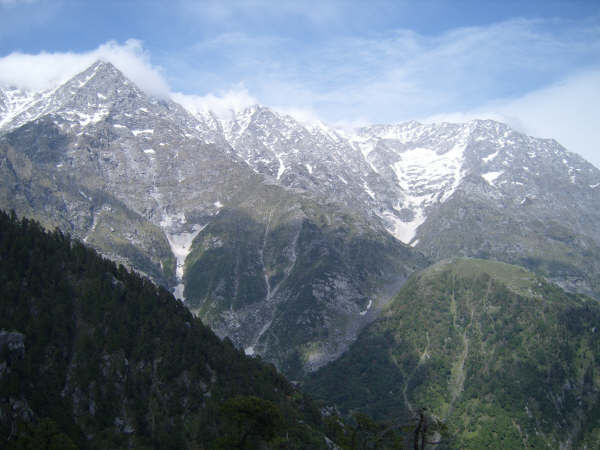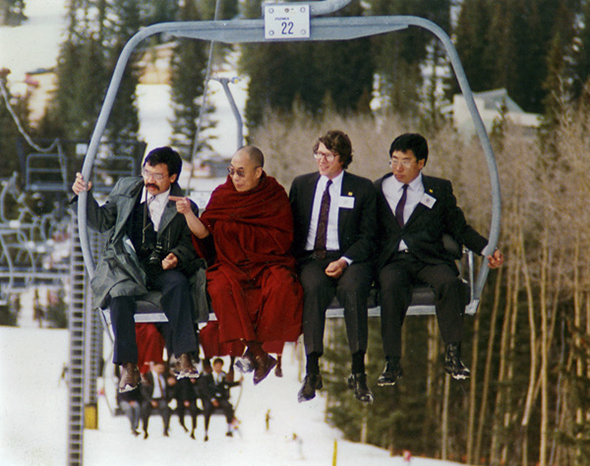| Carl Sagan from the dust jacket of Cosmos |
The question is which man better represents the scientific community. Powell advances Digges, the diligent astronomer and diplomatic observer. Sotor makes the case for Bruno, who contributed much to our understanding of stars but who also alienated his religious community in the process. Powell is correct to say that this is an important issue but I disagree that the first episode fails to advance the correct agenda by alienating religious fundamentalists through the use of Bruno.
As I see it, there are two problems with the critique. The first is that it fails to appreciate that science is an enterprise of realists and visionaries. The two are needed but rarely are these attributes woven together in a single person, other than perhaps in Charles Darwin or Albert Einstein. Yes, science is a community affair but that shouldn't mean that all must play similar roles. The power and beauty of science is that the testing of results confirms or denies not just an individual's opinion but the scientific community's opinion as to the best fit with reality. And as Michael Polanyi and Thomas Kuhn's concept of paradigm shift explains, this best fit can change radically.
Science is our window to the world, a window that is enlarged through subsequent generations. Sometimes our view through this window is fairly accurate. Other times, not quite. For example, those who appreciate Einstein's contribution to scientific advancement understand that his work both refuted and extended aspects of Newtonian physics.
The second mistake of the critique is in misunderstanding the nature of Sagan's attempt at compromise. Carl Sagan was not prepared to water down science, rather he was trying to preserve it with a rapprochement between religion and science. But this enterprise seems to have failed spectacularly, not just in science but in politics and society generally.
A compromise with fundamentalist conservative forces is not possible. George Lakoff, a well-known American cognitive linguist, has explained its futility. A recent interview in The Guardian sums up Lakoff's thinking nicely -- persuasive arguments are made on the basis of moral frames rather than appeals to rationality. His argument is a damning indictment of the progressive approach. Lakoff argues the tactics of rational discussion and compromise are flawed for failing to take into account how human beings actually think. He also makes the case that conservative forces better understand the workings of the human mind when it considers topics such as science, religion and politics.
Fundamentalists have pointed to Cosmos and correctly understood that it has the power to undermine their religious beliefs. Bold statements of fact when it comes to the age of the earth or evolutionary processes do indeed strike at their core. For if the universe is infinite in space, who is to say that it is not also infinite in time? This is the crux of the matter. An infinite space/time universe, or as DeGrasse Tyson says a possible multiverse, has no need for a creator.
 |
| A dumpster at the Fisheries and Oceans Canada library Mont-Joli, Quebec |
Then in the summer of 2013, Fisheries and Oceans Canada libraries were closed. With their closures, unique research publications, some over a century old, were no longer available or were destroyed. This is baseline data, likely much of it gone forever. Since then, Environment Canada, Transport Canada, Public Works, and the main Health Canada libraries have been closed. It makes me weep. The federal government is destroying our scientific equivalent of the ancient Library of Alexandria with nary a word of opposition from Canadians!
Now the government is trying to rush C-23, the Fair Elections Act, through Parliament. A group of academics in an open letter supported by a Globe and Mail editorial said the Act will:
"undermine the integrity of the Canadian electoral process, diminish the effectiveness of Elections Canada, reduce voting rights, expand the role of money in politics and foster partisan bias in election administration."Canada is facing an unparalleled assault on democratic, scientific and environmental knowledge and institutions. Like many progressive people throughout the world, Canadians are mostly accepting this destruction.
The second episode of Cosmos talks about the five mass extinctions that preceded the modern age: the Ordovician, Devonian, Permian, Triassic, and Cretaceous periods. The unasked question is: Are we currently living in the middle of another mass extinction? There are many indicators to think so.
With over 99% of all species now extinct, the only real question is when human beings will join the crowd. Canadians in particular have a role to play both in terms of modelling good behaviour and in lessening the conditions that hasten humanity's demise. We are among the best educated populations on earth and we have control over vast reserves of oil, the ultimate cause for the imminent threat of climate change.
Does it aid our chances of survival to continue to pursue an accord with fundamentalists? In the Open Society and its Enemies, Karl Popper, the great 20th century philosopher of science, responds:
"Unlimited tolerance must lead to the disappearance of tolerance. If we extend unlimited tolerance even to those who are intolerant, if we are not prepared to defend a tolerant society against the onslaught of the intolerant, then the tolerant will be destroyed, and tolerance with them."The answer is no, we can no longer afford to pursue a compromise. George Lakoff's understanding of cognition and frames is correct and there is no possibility of reaching Powell's "peace between the two sides." We've run out of time. What is needed instead is to inspire progressive humanity to action and this is the strength of the Cosmos series.
Will further attempts to reach this rapprochement cause an undermining of the grand vision of science? And if so, will this negatively affect the thinking and actions of progressive people in defence of science and democracy? Yes on both counts.
Science is more than simple experimentation and observation. At it's best, it's inspirational and suggests steps forward. It's democratic and egalitarian in its leanings. All men and women can and have aspired to be scientists. While America has yet to see a woman elected president, there have been hundreds of American women scientists including Nobel Prize winners Maria Mayer, Barbara McClintock, Gertrude Elion as well as the famous marine biologist who created and revolutionized our understanding of the environment, Rachel Carson. Defenders of science need a reminder of what we stand to lose and an example like Bruno to inspire them. Without a strong vision, we are left floundering. Cosmos helps restore this vision.
To return to Powell's original question, would Carl Sagan approve of Giordano Bruno as a hero in Cosmos? When Dr. Sagan spoke at a special meeting of Parliament in June 1984, he did not mince words when it came to the imminent possibility of mass extinction through the use of nuclear weapons, the concept of Nuclear Winter. As our understanding of the mind is advancing, I have no doubt that Sagan would say go with the science. In this sense, Steven Sotor is correct in advancing Bruno. Science is not just an endeavour of careful observers; it is importantly a vocation of courageous visionaries.
We are standing at the sixth portal of DeGrasse Tyson's grand "Hall of Extinction". Will human beings go through that climate change gateway or remain on this side? It is time to grow up and take responsibility for our destructive influences on the ecosystem of the earth. If we don't, not only will we be the first species to be fully aware of our probable demise but also the first to squander an opportunity to prevent it.
P.S. The final instalment of the Powell-Sotor debate is in. It's an interesting debate -- thank you. This final comment by Powell is spot on:
"In truth, it took both Bruno and Digges (and their many successors) to build – slowly, incrementally, with many stumbles along the way – toward our modern understanding of the universe."
The views expressed in this post are personal opinions only.



